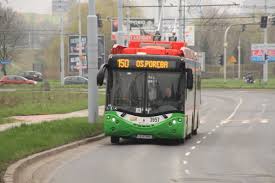
Introduction
Lublin, located in eastern Poland, is a city renowned for its rich history, vibrant culture, and strategic importance. As the largest city in the region, it serves not only as a centre of education and trade but also as a hub of cultural activities, drawing both local and international visitors. Understanding Lublin’s significance is essential for recognising its role in shaping Poland’s past, present, and future.
A Brief History
Founded in the 10th century, Lublin has a storied past that reflects the broader historical tides of Poland. It has witnessed significant events, such as the Union of Lublin in 1569, which formed the Polish-Lithuanian Commonwealth, a key moment in European history. This heritage is evident in the city’s architecture, from its medieval Castle to the Old Town, which is a UNESCO World Heritage site.
Cultural Significance
Lublin is often described as a melting pot of cultures, showcasing a unique blend of Polish, Jewish, and Ukrainian influences. Throughout the year, the city hosts numerous cultural events, including the Lublin Open Air Festival, which celebrates various forms of artistic expression. With institutions like the Centre for the Meeting of Cultures, Lublin maintains its commitment to fostering dialogue and intercultural collaboration.
Modern Developments
In recent years, Lublin has seen significant investments aimed at revitalising its infrastructure and promoting economic growth. The establishment of universities and technological parks has transformed the city into a student-friendly environment and an emerging centre for innovators and entrepreneurs. As a result, Lublin is increasingly being recognised as a promising location for startups and tech companies, contributing to its dynamic economy.
Challenges and Opportunities
Despite its many advantages, Lublin faces challenges typical of rapidly growing urban centres, such as managing infrastructure expansion and ensuring sustainable development. However, ongoing projects aimed at improving public transport and environmental sustainability hold promise for enhancing the quality of life for its residents.
Conclusion
Lublin embodies a fascinating blend of history, culture, and modernity. As Poland continues to develop its position within the European Union and the global arena, cities like Lublin will play a crucial role in shaping the country’s future. For visitors and investors alike, Lublin offers a unique opportunity to engage with a city at the crossroads of tradition and progress, making it an essential destination for anyone interested in the evolving face of Poland.
You may also like

The Role of Metro Systems in Modern Cities

Costa Coffee’s Commitment to Sustainability in 2023
